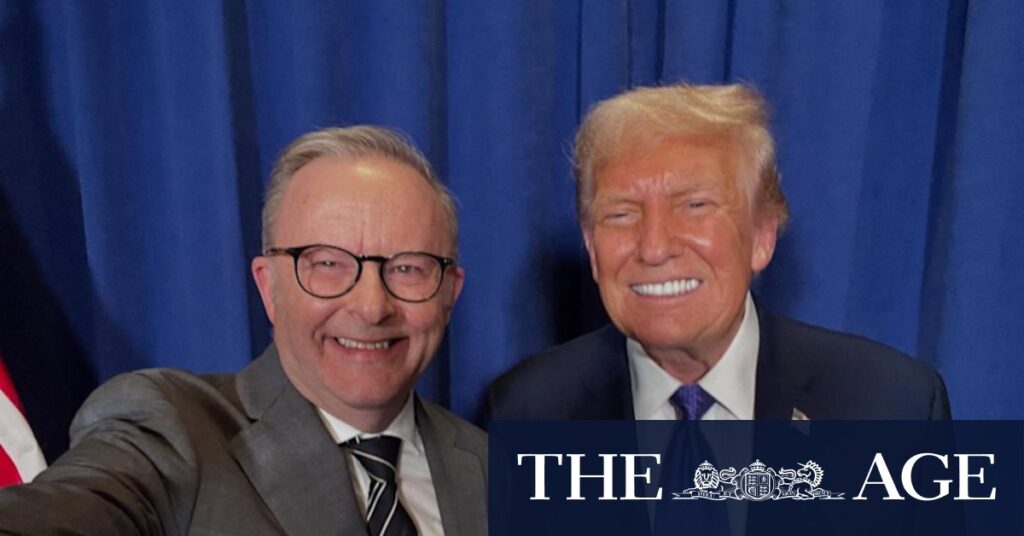
Australia is moving swiftly to establish a strategic minerals reserve in collaboration with the United States, as Prime Minister Anthony Albanese seeks to finalize a critical resources deal ahead of his meeting with President Donald Trump. The urgency of this initiative is underscored by recent geopolitical tensions, notably Trump’s threat to impose a 100 percent tariff on Chinese goods following China’s expansion of export restrictions on critical minerals.
According to a confidential departmental brief obtained by this publication, officials from the Prime Minister’s department have begun engaging with Australian miners to explore their potential contributions to the proposed $1.2 billion critical minerals strategic reserve. This initiative aims to secure essential elements such as lithium, nickel, and vanadium, which are vital for green energy, defense products, and technology sectors.
Geopolitical Tensions and Strategic Minerals
The announcement comes as the Trump administration grapples with China’s dominance in the rare earths sector, where it produces over 90 percent of the world’s processed rare earths. The U.S. has expressed concerns that China’s control could undermine manufacturing and sovereign capabilities in Western nations. This anxiety was heightened when China began blocking exports to the U.S., prompting warnings from carmakers about potential production slowdowns.
In a recent move, China expanded its rare earths export controls, adding five elements to the list, which led to a sharp reaction from Trump. On Saturday, he announced via Truth Social that the U.S. would implement a 100 percent tariff on Chinese goods starting November and restrict exports of critical software to China, actions that reportedly wiped $4.4 trillion off the U.S. share market.
Australia’s Strategic Position and International Partnerships
Australia’s role in this global minerals strategy is pivotal. The country’s rich deposits and expertise in mining make it a key player in the international supply chain. The departmental brief highlights Australia’s exploration of “offtake agreements,” where the government commits to purchasing a set amount of resources. This approach is part of a broader strategy to defend local companies from subsidized competition from China.
Labor has already invested billions in companies like Iluka and Arafura to bolster Australia’s rare earths processing capabilities. Projects in Gippsland, Victoria, including the Fingerboards project, are being closely watched for their potential to supply critical elements for U.S. defense products.
Ukraine’s Interest in Australian Expertise
Meanwhile, Ukraine has expressed interest in leveraging Australian mining expertise to support its own resources sector. Ukrainian ambassador to Australia, Vasyl Myroshnychenko, emphasized the need for Australian assistance in discovering and developing Ukraine’s significant mineral deposits. He noted that Australia’s mining standards and technology are among the best globally, surpassing those in the EU and elsewhere.
“Your know-how and new technology and the standards of mining in Western Australia – they’re probably the best in the world,” Myroshnychenko stated. “Trump knows about your expertise in mining. You could definitely help Americans and Ukrainians to work on that minerals deal.”
Strategic Implications and Future Outlook
The push to secure critical minerals is not just about economic interests but also strategic security. The Trump administration’s focus on these resources is part of a broader effort to ensure the U.S. is not reliant on potentially hostile powers for essential materials. Kevin Rudd, the U.S. ambassador, has been instrumental in fostering collaboration between Australian miners and U.S. officials, aiming to integrate Australia into a global supply chain for critical elements used in various industries.
As Albanese prepares for his meeting with Trump, the stakes are high. The outcome of these discussions could shape the future of Australia’s role in the global minerals market and its strategic alliances. The potential for new agreements and partnerships remains a focal point as both nations navigate the complexities of international trade and geopolitical strategy.
Looking ahead, the success of this initiative will depend on Australia’s ability to develop its processing and refining capabilities, as well as its capacity to attract private investment and international collaboration. The strategic minerals reserve represents a significant opportunity for Australia to assert its position as a leader in the global minerals market, while also strengthening its ties with key international partners.







